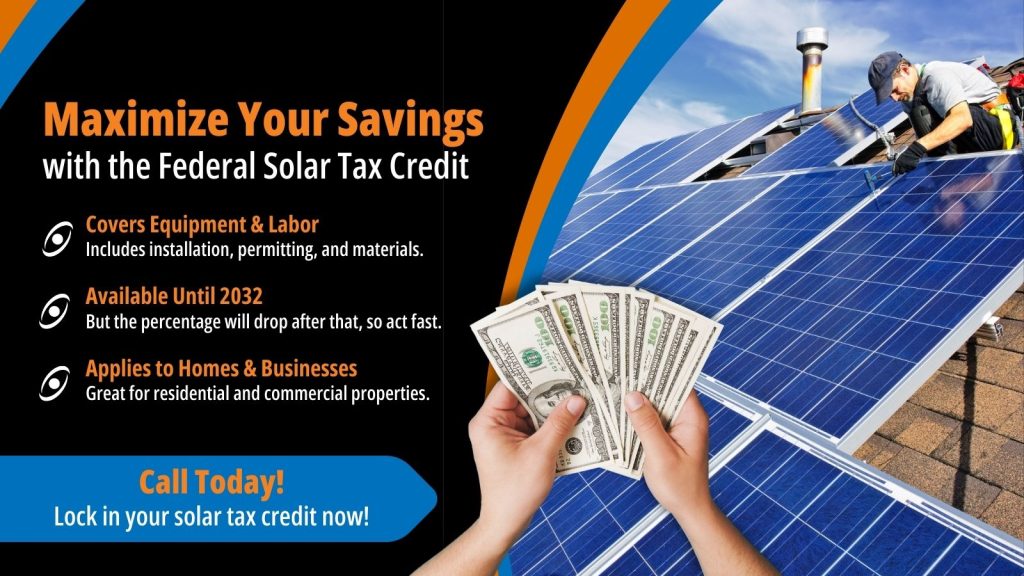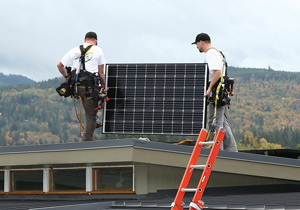Switching to solar power is one of the best ways to reduce your energy bills and lower your carbon footprint. However, the upfront cost of solar panel installation can be a significant barrier for many homeowners. Fortunately, various incentives, including tax credits, rebates, and financing options, can help you save thousands of dollars on your solar energy system in Bellingham.

Federal Solar Investment Tax Credit
One of the most substantial financial incentives for homeowners installing solar panels is the Federal Solar Investment Tax Credit (ITC). As of 2024, the ITC allows you to deduct a large percentage of the installation cost from your federal taxes. This credit applies to both residential and commercial solar installations and covers equipment, labor, and permitting costs.
However, the ITC is set to decrease after 2032, so homeowners interested in maximizing their savings should act sooner rather than later. The earlier you invest in solar panels and take advantage of these credits, the better!
State and Local Solar Incentives
Many states and local governments offer additional incentives to make solar power even more affordable. These programs vary by location but can include:
- State Tax Credits. Some states offer tax credits similar to the federal ITC, further reducing your tax liability.
- Cash Rebates. Utility companies and state agencies may provide rebates that directly lower your upfront installation costs. These rebates can range from a few hundred to several thousand dollars, depending on your location and system size.
- Sales and Property Tax Exemptions. Some states waive sales tax on solar equipment purchases, while others exclude solar installations from property tax assessments. This means adding solar panels won’t increase your home’s taxable value.
To find out what incentives are available in your area, check with our team of experts who can walk you through your savings opportunities.
Net Metering: Earning Credits for Excess Energy
Many utility companies offer net metering, which allows homeowners to sell excess solar energy back to the grid. With net metering, if your solar panels generate more electricity than your home uses, you receive bill credits that can offset future energy costs.
The value of these credits depends on state policies and utility company regulations, but net metering can significantly improve your return on investment in solar power.
Solar Renewable Energy Certificates (SRECs)
Some states have Solar Renewable Energy Certificate (SREC) programs, allowing homeowners to earn credits for the clean energy their solar system produces. Utilities purchase these credits to meet renewable energy requirements, and homeowners can sell them for extra income. Depending on your state’s SREC market, this can generate hundreds or even thousands of dollars per year.
Low-Interest Solar Loans & Leasing Options
If you don’t have the upfront capital for a solar installation, many financing options are available. Our team works with a wide variety of solar loans and financing options that can get you the solar panel installation set up even if you don’t have the direct cash to pay on-hand. We’ll find the best solution for you and your family when you work with us.
Our team of Home Performance Experts has served the I-5 corridor from Blaine to Marysville, Oak Harbor to Concrete, and the San Juan Islands since 1972 with a mission of Improving Lives™. We look forward to serving you too! Contact Solar By Barron today for solar panel installation.

